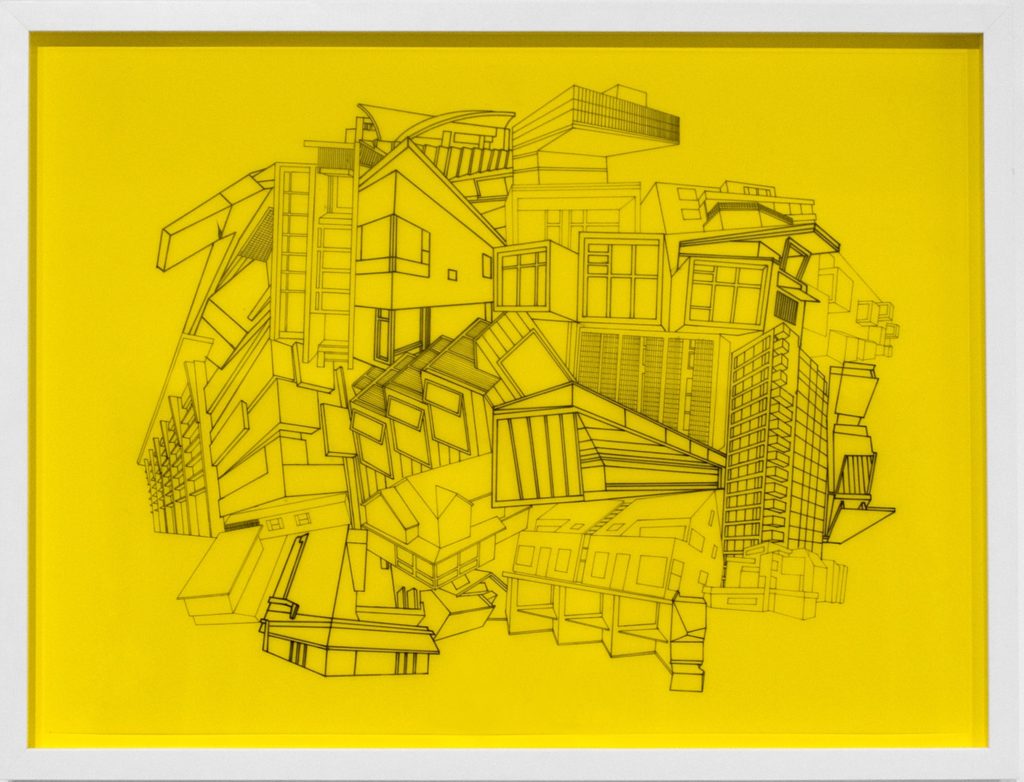Image: Sara Graham, Proposition for a new system (2007-2008)
In the 2018-19 ASCA Cities seminar series we examine the city through the lens of infrastructures. This seminar will take stock of the many failures and crises of infrastructure, gathering thinkers and ideas committed to reparative infrastructures that both anticipate and help sustain sociality. Putting infrastructure at the heart of our social and cultural analysis, as Deborah Cowen (2017) argues, “insists that we ask how power works, in its most mundane and practical ways,” in turn helping to refine concepts of resistance and justice.
Attending to the infrastructures that reproduce sociality, this seminar pursues recent insights in feminist thought and the Black intellectual tradition, among others, in order to reframe social reproduction and its gendered and racialized labours in the normalization of existing power relations. In Lauren Berlant’s account of the repair or replacement of broken infrastructure, for instance, “the extension of relations in a certain direction cannot be conflated with the repair of what wasn’t working” (2016). This means exerting caution before embracing ‘the commons’ as a political concept since it may too quickly gloss over how systematic divisions and exclusions permeate everyday life today. What, then, is the promise of infrastructure, both as normative condition and critical possibility not yet lived? What becomes of infrastructure as an analytic tool when it is approached from the social sciences and humanities?
This year’s seminar series will consider how to incorporate these questions into the cross-disciplinary frameworks of the Amsterdam School for Cultural Analysis: How can we analyse citizenship through a focus on alternative material and social infrastructures rather than corporations or nation states? How do infrastructures determine politics of life and death, especially as played out across uneven power networks in urban environments? Could alternative infrastructures help initiate an imaginary other than ongoing crisis or seemingly unending state of political, economic, and environmental emergency?
Fri. 14 Sept. 2018: Focused Reading and Discussion. Location: room D.1.18A, Oudemanhuispoort (Oudemanhuispoort 4-6), Time: 3-5pm
Fri. 12 Oct. 2018: Visit to Rotterdam, with talks by Marten Kuypers/Marina Otero (Het Nieuwe Instituut) and Ties Joosten (writer for Follow the Money). Time: 10am-1.30pm [Please note: there are a very limited number of places, so please contact the organisers if you would like to join]
Tues. 13 Nov. 2018: Imre Szeman (University of Waterloo): “Pipeline Politics”, Location: room D3.06, Oost-Indisch Huis (Kloveniersburgwal 48) [please note: new location!], Time: 3-5pm
Thu. 13 Dec. 2018: Cristiana Strava (University of Leiden): “Temporalities of Mega-Infrastructure and Disrepair”, Location: room 1.04, P.C. Hoofthuis (Spuistraat 134), Time: 4-6pm [please note: new date, time and location!]
Fri. 8 Feb. 2019 Liska Chan (University of Oregon): “Chinatown Invisible: Hybrid-Mapping and Making Do”, Location: room 1.01A, Universiteitstheater (Nieuwe Doelenstraat 16-18), Time: 3-5pm
Thu. 14 Mar. 2019 Asher Boersma (University of Siegen): “The Challenge of Scaling: How Infrastructure is Lived”, Location: room 1.05, P.C. Hoofthuis (Spuistraat 134), Time: 3-5pm [please note: new date / location!]
Mon. 15 Apr. 2019 Deborah Cowen (University of Toronto): “Infrastructure Otherwise? Cartographies of Settler Colonialism, Resistance and Repair”, Location: Doelenzaal room, University Library (Singel 425), Time: 3-5pm
Fri. 17 May 2019 Arthur Rose (University of Bristol), “Asbestos Towns”: Location: room 1.01A, Universiteitstheater (Nieuwe Doelenstraat 16-18), Time: 3-5pm
For more information, please contact Kasia Mika, Jeff Diamanti, Simone Kalkman or Carolyn Birdsall
